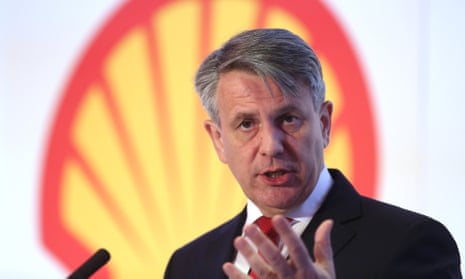Royal Dutch Shell have announced they will end their membership of the far-right American Legislative Exchange Council (Alec) because of its continuing denial of the science of climate change.
In a statement released on Friday, a Shell spokesman said: “Alec advocates for specific economic growth initiatives, but its stance on climate change is clearly inconsistent with our own.”
Shell joins fellow oil major BP in a corporate exodus from the conservative, free-market lobby group. Shell’s decision comes after sustained pressure from campaign groups, in particular the Union of Concerned Scientists (UCS), for Shell to stop funding Alec. The group’s position statement on climate change calls it an “historical phenomenon”.
“The debate will continue on the significance of natural and anthropogenic contributions,” it reads. Alec has lead an assault on renewable energy that observers are concerned could significantly hamper the industry.
The move was flagged by Shell CEO Ben van Beurden in an interview with the Guardian in May when he was confronted over the company’s continued funding of climate denial. He defended Shell’s membership on the grounds that Alec worked on a broad range of policy issues, but “watch this space”, he said.
Shell’s spokesman said: “We have long recognised both the importance of the climate challenge and the critical role energy has in determining quality of life for people across the world. As part of an ongoing review of memberships and affiliations, we will be letting our association with Alec lapse when the current contracted term ends early next year.”
Shell’s departure from the controversial lobbying network comes at a time when several major companies linked to fossil fuels have been quietly severing ties. The Guardian has learned that the Canadian National Railway has similarly pulled its membership, albeit without making any public announcement about it.
The railway company is a major carrier of coal in Canada as well as in the US. A spokesman for the firm confirmed the break in relations with Alec but declined to comment.
Environmentalists were quick to point out that leaving Alec was not synonymous with positively contributing to the challenge of climate change. Last week Shell recommenced drilling in the Arctic, a programme the company hopes will open up ten of billions of barrels of new oil reserves but the International Energy Agency says is unnecessary to secure global energy supply.
Charlie Kronick, a Greenpeace senior programme adviser, said: “Shell is being dragged kicking and screaming out of Alec due to investor and public pressure. But they have a long way to go to bridge the massive gap between the reality of their business plans, most notably their catastrophic plan to drill in the Arctic, their other anti-climate lobbying, and their claimed leadership on climate change.”
Nick Surgey, director of research at the Center for Media and Democracy, said: “It’s obviously a positive step for Shell to stop funding Alec and its climate change denial. Other oil companies should join them. Unfortunately this is another occasion when Shell’s positive language about climate change doesn’t match their actions. Drilling for oil in the Arctic might turn a profit for Shell, but it must be stopped if we want to avoid catastrophic climate change.”
Alec is reportedly facing a funding crisis after losing many of the world’s biggest corporations from its stable in recent years. Amazon, Coca-Cola, General Electric, Kraft, McDonald’s, Walmart, Google, Yahoo, Facebook, eBay and Yelp all left the group after its stand-your-ground campaign on gun control after the 2012 killing of teenager Trayvon Martin.
Angela Anderson, director of UCS’s climate and energy programme, said Shell’s public position on climate change and advocacy for a carbon price had been undermined by its membership of Alec.
Shell maintains its membership of the American Petroleum Institute, an organisation that has funded the production of doubt about climate science. US oil giants Chevron and ExxonMobil remain members of Alec.
“It’s simply untenable for companies to ask policymakers to adopt a carbon price while supporting groups that fight climate and clean energy policies and spread misinformation about climate science,” she said.
News of the Shell move comes four days after Barack Obama announced his “clean power plan” that would impose sweeping curbs to emissions from power plants. The job of implementing the target of reducing overall carbon emissions by 32% below 2005 levels by 2030 will fall to the federal agency the US Environmental Protection Agency (EPA).
Alec is a leading antagonist of the EPA, and as such is at the forefront of lobbying efforts to undermine Obama’s ambition to combat climate change. In October, Alec’s energy, environment and agriculture sub-committee discussed a proposal to lobby Congress to eliminate the EPA altogether and delegate its powers to individual states.
At its most recent summit in San Diego last July, Alec launched a new initiative that encourages the creation of litigation funds by state attorneys general. The funds, which could be injected with capital from corporations, would be used by state officials to issue legal challenges to Obama’s new climate change, thus clogging them up in the courts.

Comments (…)
Sign in or create your Guardian account to join the discussion